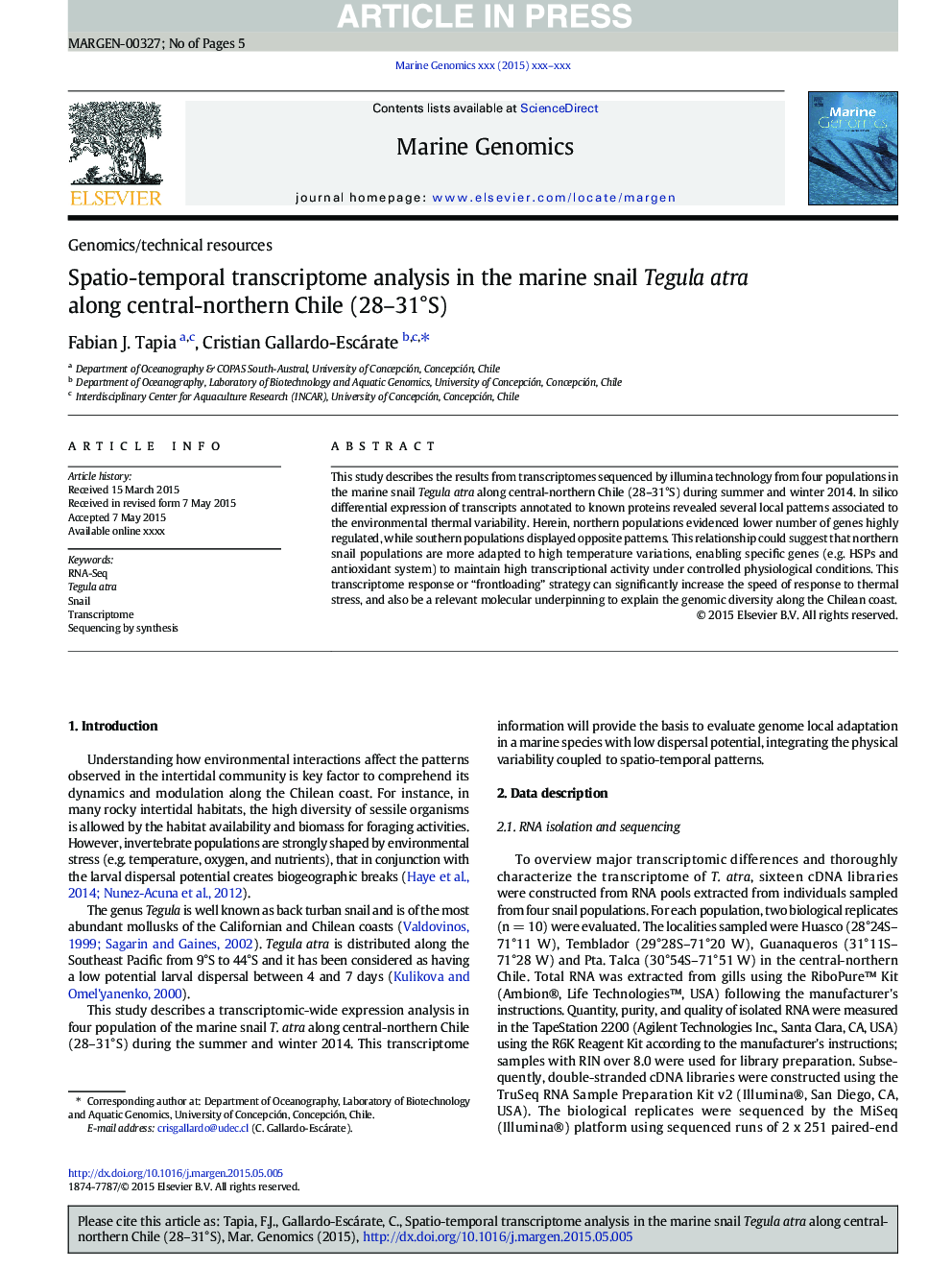| Article ID | Journal | Published Year | Pages | File Type |
|---|---|---|---|---|
| 8388402 | Marine Genomics | 2015 | 5 Pages |
Abstract
This study describes the results from transcriptomes sequenced by illumina technology from four populations in the marine snail Tegula atra along central-northern Chile (28-31°S) during summer and winter 2014. In silico differential expression of transcripts annotated to known proteins revealed several local patterns associated to the environmental thermal variability. Herein, northern populations evidenced lower number of genes highly regulated, while southern populations displayed opposite patterns. This relationship could suggest that northern snail populations are more adapted to high temperature variations, enabling specific genes (e.g. HSPs and antioxidant system) to maintain high transcriptional activity under controlled physiological conditions. This transcriptome response or “frontloading” strategy can significantly increase the speed of response to thermal stress, and also be a relevant molecular underpinning to explain the genomic diversity along the Chilean coast.
Related Topics
Physical Sciences and Engineering
Earth and Planetary Sciences
Earth and Planetary Sciences (General)
Authors
Fabian J. Tapia, Cristian Gallardo-Escárate,
